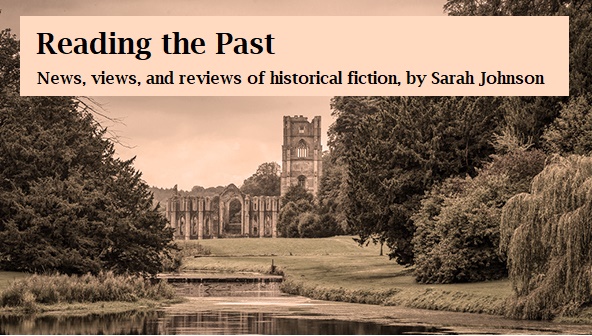Also on the subject of uncertainty in publishing, I was puzzled by this quote from the same WSJ piece:
Historical thrillers in particular are hot. One theory says readers are seeking a certainty in these books that since the end of the Cold War they're having trouble finding elsewhere.I wonder about this theory for the current popularity of historical fiction, and not just because I'm weary of 9/11 being cited as the cause for every societal shift you can name. I'm more with Allan Massie here. (See yesterday's blog entry.) Historical fiction can usefully remind us that the outcomes of past events -- things that to us, looking back from today's vantage point, may seem inevitable -- were far from certain for people living in those times.
"We're seeing a return to the past because everything was in its place, and people were recognizably polarized in a way that gives us comfort," says literary agent Richard Curtis. "In the post 9/11 world, we aren't clear about our enemies. Is the military officer in an Iraqi uniform a friend, or is he a terrorist posing as one? We need to know who to root for, and historical fiction provides us with that."
Not exactly a comforting feeling, is it?










He might have a point that people fondly imagine that the past was neat and tidy and polarised along recognisable lines. I agree with you and with Alan Massie that it wasn't like that at all - every era was at least as complex and confused as the present one to the people who were living through it, because they didn't have X centuries of hindsight to tell them how it all worked out. I like historical novels, and historical nonfiction, that explore this complexity and uncertainty.
ReplyDeleteYes, exactly. There are historical novels that can be described as "safe and predictable"... but those aren't the type I enjoy much. If that's what people generally expect out of historical fiction, they probably won't stay in the genre very long.
ReplyDeleteAlong these same lines. Read first Laura Miller's review of Stephen Wright's The Amalgamation Polka from the New York Times last February, and then Larry Zuckerman's terrific rebuttal.
Hehe, my novels surely aren't 'safe', not with the way I throw my characters into situations where cultures meet and clash and times change. A Roman officer at the Hadrian's Wall, a German warrior in the Roman army, a 12th century Scottish clan chief torn between the traditional Gaelic lifestyle and the Norman court ... that's my idea of fun, lol.
ReplyDelete